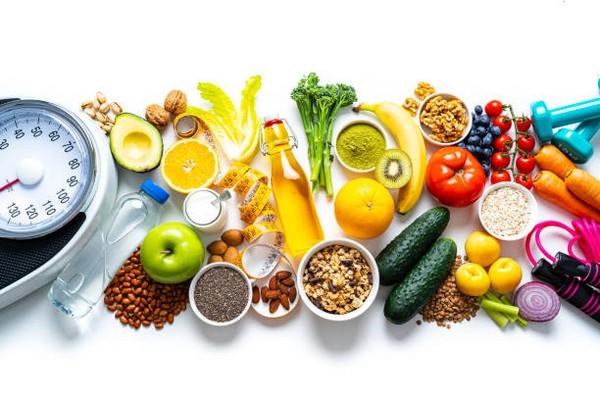Satiety is the feeling of fullness and satisfaction after eating. Foods that promote satiety are important for controlling hunger and reducing overall calorie intake. Low-calorie foods that fill you up can help you stay on track with your dietary goals without feeling deprived.
Factors Influencing Satiety
Several factors influence how filling a food is, including:
- Volume: Foods that contain a lot of water or air can increase volume without adding many calories.
- Fiber: High-fiber foods slow digestion and increase fullness.
- Protein: Protein is more satiating than carbohydrates or fats.
- Energy Density: Foods with low energy density provide fewer calories per gram.
Top Low-Calorie Foods That Keep You Full
Here are specific suggestions for low-calorie foods that can help you feel full:
1. Vegetables
Leafy Greens
Leafy greens like spinach, kale, and lettuce are high in water and fiber, making them very filling without adding many calories.
Cruciferous Vegetables
Broccoli, cauliflower, Brussels sprouts, and cabbage are nutrient-dense, high in fiber, and low in calories.
2. Fruits
Berries
Berries such as strawberries, blueberries, raspberries, and blackberries are high in water and fiber, making them both filling and low in calories.
Apples and Pears
These fruits contain pectin, a type of fiber that slows digestion and increases fullness.
3. Whole Grains
Oats
Oats are rich in fiber, especially beta-glucan, which can help you feel full longer.
Quinoa
Quinoa is a high-protein grain that is also a good source of fiber.
4. Legumes
Beans and Lentils
Legumes are high in protein and fiber, which can help keep you full for hours.
5. Lean Proteins
Chicken Breast
Chicken breast is low in fat and high in protein, making it a satiating food choice.
Fish
Fish like salmon and tuna are high in protein and healthy fats that promote fullness.
6. Dairy
Greek Yogurt
Greek yogurt is higher in protein than regular yogurt and can be very filling.
Cottage Cheese
Cottage cheese is low in calories and high in protein, making it a great option for a filling snack.
7. Nuts and Seeds
Almonds
Almonds are rich in protein, fiber, and healthy fats. A small handful can help keep you full.
Chia Seeds
Chia seeds absorb liquid and expand, increasing their volume and promoting satiety.
8. Soups and Broths
Vegetable Soup
Broth-based soups, especially those loaded with vegetables, are filling and low in calories.
Bone Broth
Bone broth is low in calories but can be very satisfying and nourishing.
See Also: What Diet To Follow To Reduce Belly Fat
Incorporating Low-Calorie, Filling Foods into Your Diet
Plan Your Meals Around Filling Foods
Start each meal with a salad or vegetable soup to take the edge off your hunger before moving on to the main course.
Snack Smart
Choose low-calorie, high-fiber snacks like fruits, vegetables, and nuts to keep you satisfied between meals.
Stay Hydrated
Sometimes thirst can be mistaken for hunger. Drink plenty of water throughout the day to help manage hunger.
Balance Your Plate
Include a source of protein, fiber, and healthy fats in every meal to maximize satiety.
Conclusion
Finding low-calorie foods that fill you up can help you manage your weight and stay healthy without feeling deprived. By focusing on high-fiber, high-protein foods and incorporating them into your daily diet, you can achieve your dietary goals while enjoying satisfying meals.
Frequently Asked Questions (FAQ)
What are the best low-calorie snacks that keep you full?
The best low-calorie snacks that keep you full include Greek yogurt, apple slices with almond butter, carrots and hummus, and a handful of almonds or chia seed pudding.
How can I incorporate more fiber into my diet?
You can incorporate more fiber into your diet by eating more fruits, vegetables, whole grains, and legumes. Additionally, adding seeds like chia and flax to your meals can boost your fiber intake.
Is it possible to feel full on a calorie deficit?
Yes, it is possible to feel full on a calorie deficit by choosing foods that are high in fiber and protein, drinking plenty of water, and spreading your meals throughout the day to avoid extreme hunger.
Can drinking water help with satiety?
Yes, drinking water can help with satiety. Sometimes our bodies can mistake thirst for hunger. Drinking water before meals can also help you feel full and eat less.
What are some high-protein, low-calorie foods?
High-protein, low-calorie foods include chicken breast, turkey, fish, Greek yogurt, cottage cheese, eggs, tofu, and legumes like beans and lentils.


